Memories are strange. They can be all sorts of things: joyful, forlorn, regretful, cringeworthy and everything else in between. Always, though, they are distorted, at least a little. For most people, it is impossible to remember a moment in our lives with absolute clarity; the recollection will always be affected by our biases, fragmented too as our brain sift out the white noise and letting the valuable parts remain. It’s just the reality of being alive, but there’s a certain sadness to that. The immediate experiences we have, like the one you and I are having right now, can never be perfectly preserved. Even a video only captures a select frame. Even if what’s forgotten is mundane and unimportant, it’s still a shame, I think.
Open Roads is a story about vignettes; how we choose to remember the biggest moments of our lives, and what we do to manage the impact that memory leaves behind. The game feels deeply nostalgic in a lot of ways. For one, being set in 2003, it’s going to capture a very specific period of time for a lot of people. I was 3 during the year this game is set, so I can’t say I recall much of that year specifically, but I do know the feeling of growing up in the mid-2000s, so I have a certain fondness for the setting.
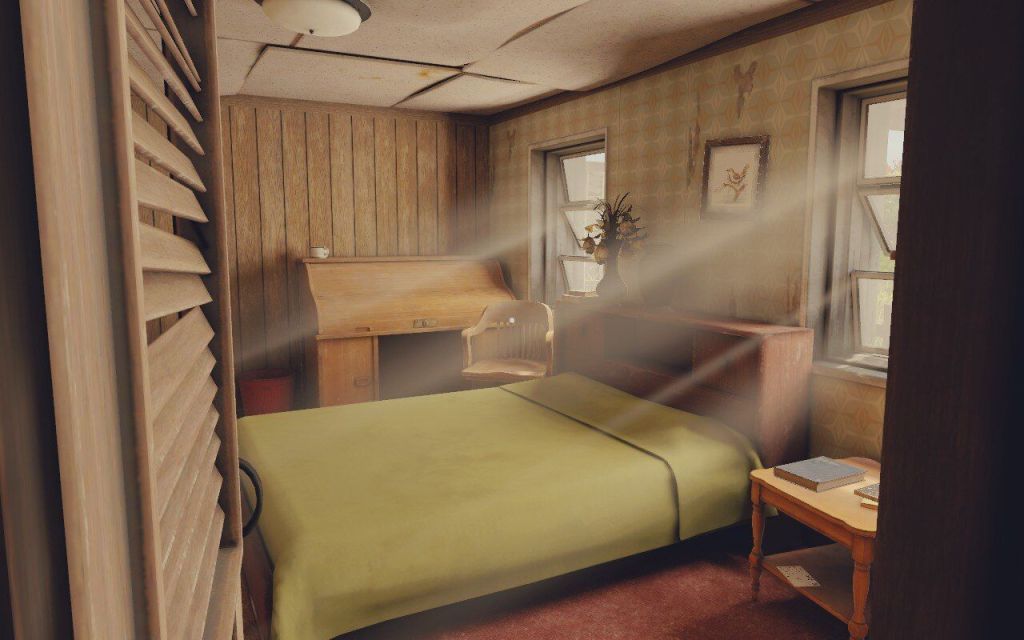
Seeking to capture a time now 20 years in the past, the game itself feels like a memory, or an attempt to visualise one. The visuals are often cozy, but also cold at times. I can quite easily associate a colour with each sequence – the warm orange and slightly colder yellow for Grandma Helen’s half-emptied home, nature’s greens and browns for the overgrown mobile home, or the melancholic grey and light blues of a long-abandoned boathouse once belonging to a man whose life was over. These colours are present in the scenes, of course, but I’m talking about them more as a feeling.
There’s a beautiful tactility to Open Roads‘s places and things. Your main mode of interaction with the game world involves interacting with objects, picking them up, examining them, maybe triggering a conversation between the game’s main duo – Tess and Opal – and putting them back where you found them. Every object is lovingly crafted, with such beautiful texture, from the most mundane mugs and plates to the various letters and postcards. Notes are written with a careful attention to form and function; often it is easy to tell who wrote them by simply seeing their handwriting or their grammar styles.
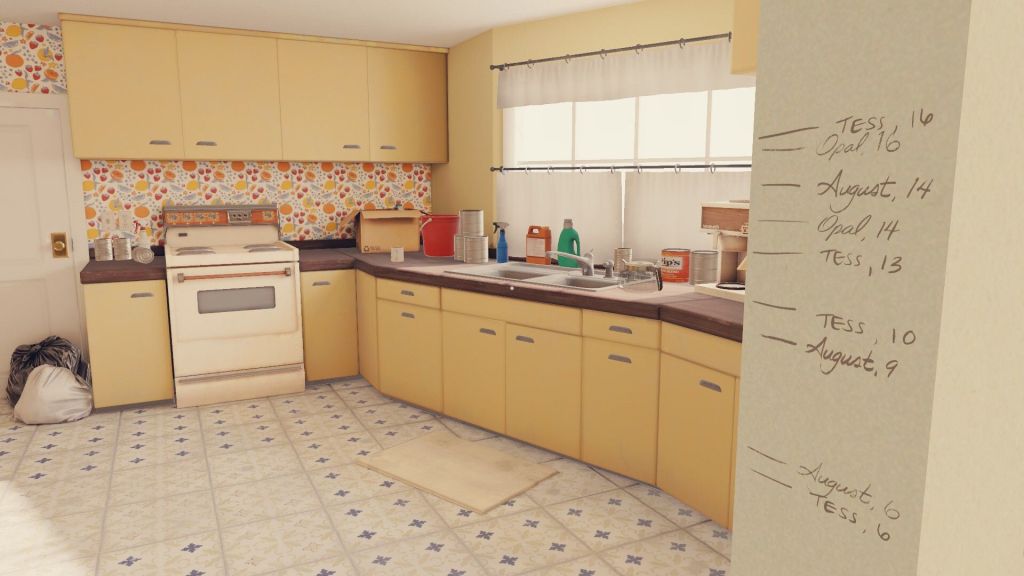
Picking up and placing down objects is also accompanied by gorgeous sound design. It goes further than simply being what you’d expect a fork to sound like being placed back on a counter; there’s such a diversity of sounds here, each clearly recorded with such care and affection.
So what though, right? The game about picking stuff up and putting them back down is good at that, is that supposed to be impressive? Perhaps not, but to me, what stands out isn’t just the craft, but the feeling that comes with it. You might not remember the cup you used to drink from as a kid, but I’ll bet your hands and mouth will remember the texture, and your ears will remember the sound of placing it down. There’s an often unexplainable emotional element to every interaction we have in life, that remains engraved into our souls, and that’s the feeling I think Open Roads captures so beautifully. It all comes back to memory, or rather the subconscious feeling of a memory.

The actual narrative of Open Roads is pretty compelling too. You play as Tess, a 16-year-old in the process of moving out of her home, after her grandma Helen – the owner of the house – passes away and the family are forced to sell it. Her mother, Opal, is stressed about the sale, trying to tie up all the necessary loose ends before they move out, when the pair stumble across a hidden suitcase revealing some hidden truths about Helen, sending them on a road trip into Opal’s past to try and piece together the mystery.
It’s a pretty low stakes plot, but the story’s substance comes from what’s going on under the surface. Tess is still unclear of why her parents decided to separate, and both of them are reluctant to explain, leaving her frustrated. The delicious sauce is in the little arguments that occur throughout the game, and the tension usually comes from Tess trying to figure herself out, and Opal pushing back on anything that doesn’t fit the expectations she has for her daughter. They still get along, but there’s a lot of muck beneath the floorboards of their relationships, and every casual chat threatens to bring it bubbling up through the cracks.
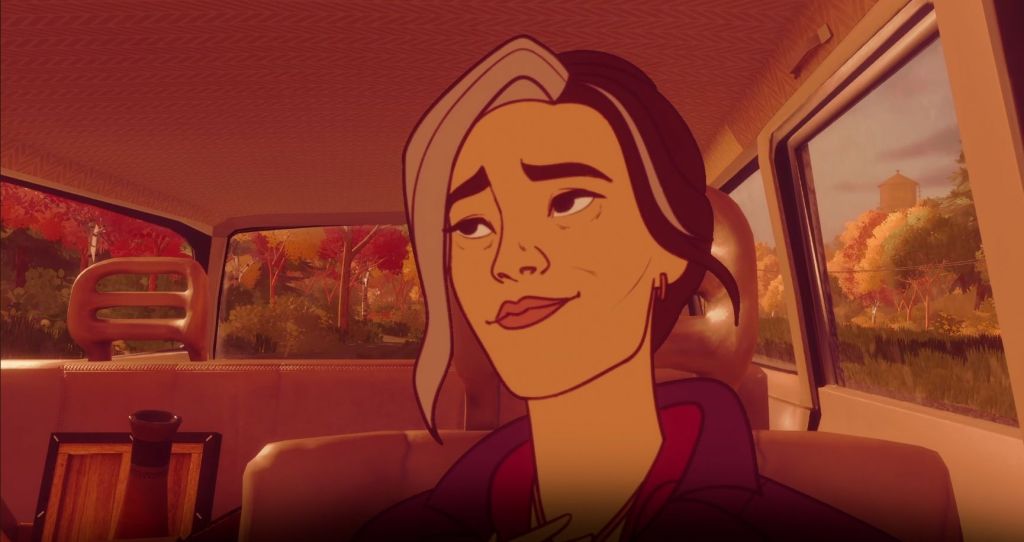
I see a lot of my mum in Opal. She’s also quite a proud woman who struggles to admit when she’s made a cut, but will let the wound fester as long as she can, because to treat it would be acknowledging there’s a problem in the first place. She lets herself suffer because of a misguided belief that doing so will protect me from hardship, but in reality this creates an entirely new challenge that inevitably stacks atop the pre-existing difficulties. She does this because she’s kind; it’s a weird situation where good intentions lead to bad outcomes, and that’s basically what’s going on between Opal and Tess.
Ultimately, Tess is a teenager. She’s unsure about her place in the world, and doesn’t believe that simply following through with her mother’s proposed life plan – go to the college her mum and grandma did, get married in the same wedding dress as her mum and grandma, and so on – is what’s right for her. There’s a dialogue system in Open Roads which allows you to choose how Tess feels about various topics, and it always felt right to me to go with the options of semi-resistance because, to be honest, that was me when I was a teen as well.
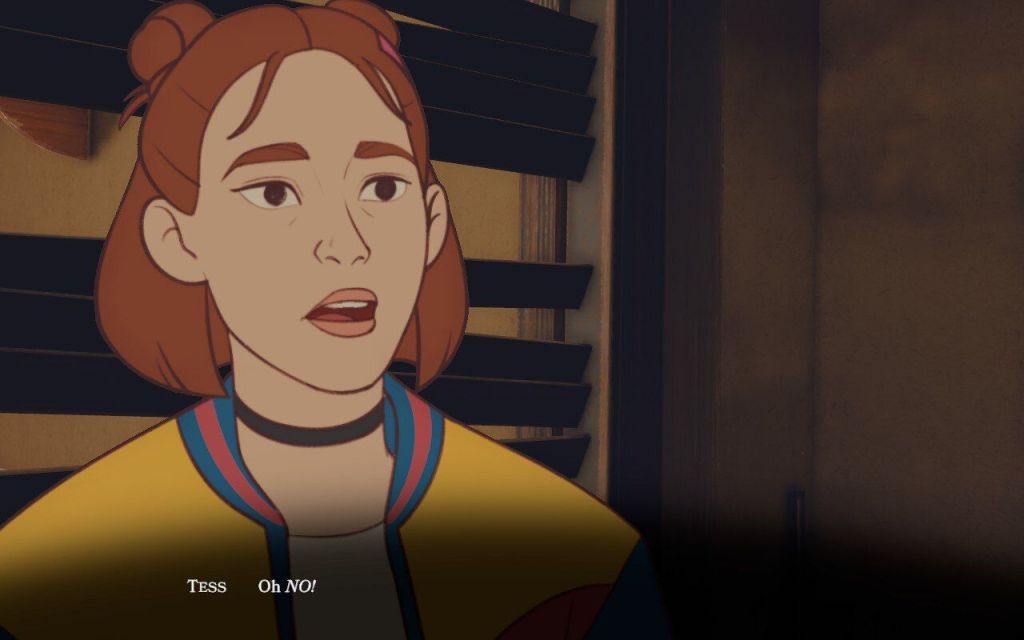
I was miserable in high school. My grades were always slipping, my friend group was getting a little smaller each day, and I was overwhelmed by the feeling that I wasn’t, and could never, live up to my parents’ expectations of me. I went to university, sure, but it was for a degree my family wasn’t very enthusiastic about, and I ended up enrolling at a school more than a hundred miles away from everybody I loved. These were little resistances I thought I could get away with, which still generally operating within the expectations put upon me. I went so far because I had basically no direction and felt like I needed to prove I could make it on my own, so I tried to remove as much of my old life as possible and start fresh.
Of course, running away from your problems doesn’t solve them; it only prolongs the suffering. I was still reliant on my parents for finances and housing between term times, and I understood that support was, to some extent, part of a deal where in exchange I would do well in university and get a good degree. Even halfway across the country, I wasn’t able to escape the feeling that I was disappointing everyone.
I think this crippling inability to meet expectations came from, at least in part, the fact that I was absolutely buried in the closet about my sexuality and gender identity. There was a part of my subconscious which just gave up, accepting that there wasn’t any point in working toward my future, since I couldn’t imagine any version of it where I would ever feel truly whole. I think I understood that if I came to terms with myself, and live as my true self, that I would inevitably be disappointing my family once again. So I kept it bottled up, and it almost killed me.
A sobering moment in my uni years was when my parents told me they were getting a divorce. It brought a lot of moments from my childhood into perspective: why they never joked around with each other, why the house was often so quiet, why any conversation I had with them about my mental health was more or less shut down before it could ever get off the ground. It turns out my parents are human. They have flaws and issues and drama I never really knew about, or chose to ignore. The coldness I sometimes felt from them was recontextualised as signs that they were likely so exhausted from their own lives – from living the lie – that they were resistant to anything else that might make their lives more difficult. It’s not right, of course, but I can sympathise with that.
I’ve long since forgiven them for that. I managed to figure my shit out by myself, plus lots of help from my friends and other loved ones, and I’m genuinely living a better life than I ever dreamed. I’ve held down a job for over a year (which a younger me couldn’t have even dreamt of), and I’ve been openly living as a woman for almost two years now. I’m still working on some thing, of course, but I’m good now.
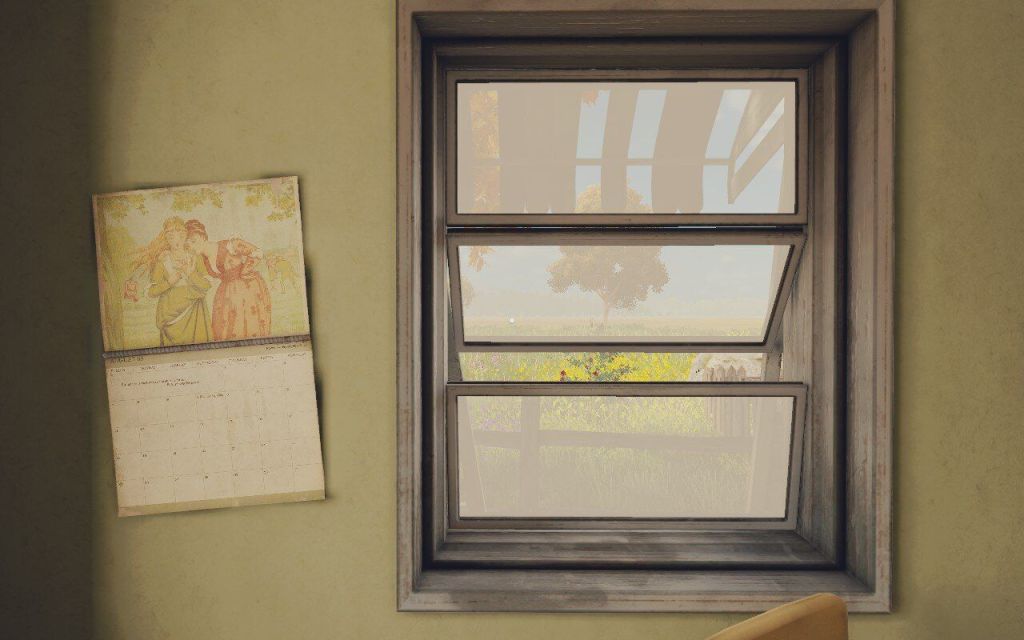
Things were really bad for a long while, but to wish it hadn’t happened feels a little reductive to me. It’s not like I can change the past, and without those years, I simply wouldn’t be me. Call it a cope; I am by no means suggesting you need to have a bad time in order to become a fuller person, but speaking from personal experience, my hardships are a part of me now. It wouldn’t do to just ignore it.
Open Roads is about memories. It’s a game that revels in the magic of recollection, from the biggest events to the littlest details. It shows the beauty in looking back into your past and embracing the truths within it; how that can be scary, but also incredibly fulfilling. There is a wholeness to be found in accepting what came before, and moving forward from what is. You are all that came before in your life until this very moment, and that can feel inescapable, but freedom in understanding that.
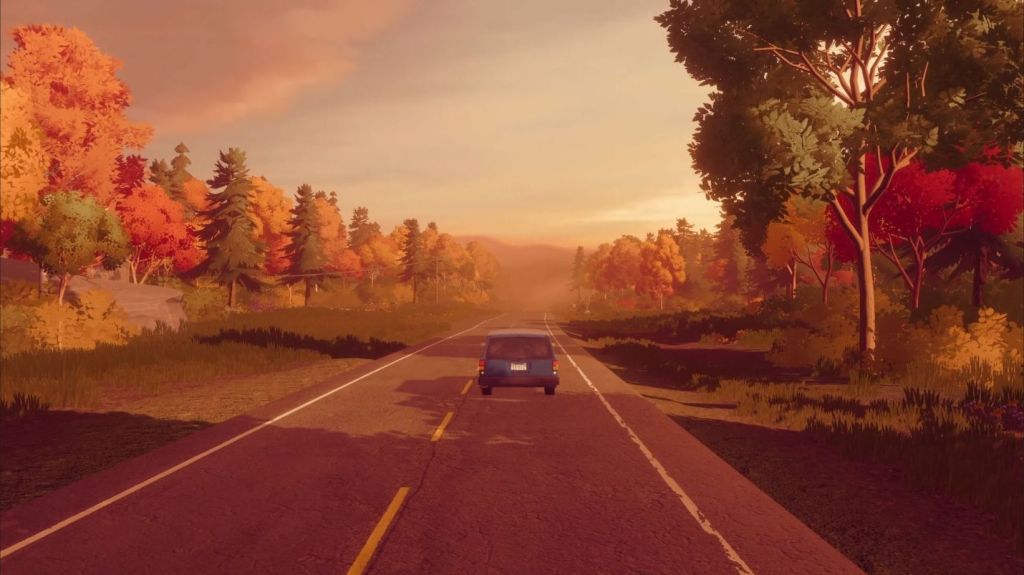
Open Roads‘ gorgeous presentation and elegant writing lend credence to this feeling. It’s a beautiful game that approaches its subject matter with honesty and sincerity. It may not click for everyone, but anyone who has dealt with the crippling impact of expectations will at least appreciate it, I think. This story is so inescapably human, and it’s a gentle reminder that even if it feels like the world is against you, some day we can look back at these hardships and smile. Hopefully, if enough time passes, they’ll distort, and only the good will need to remain.
★★★★☆
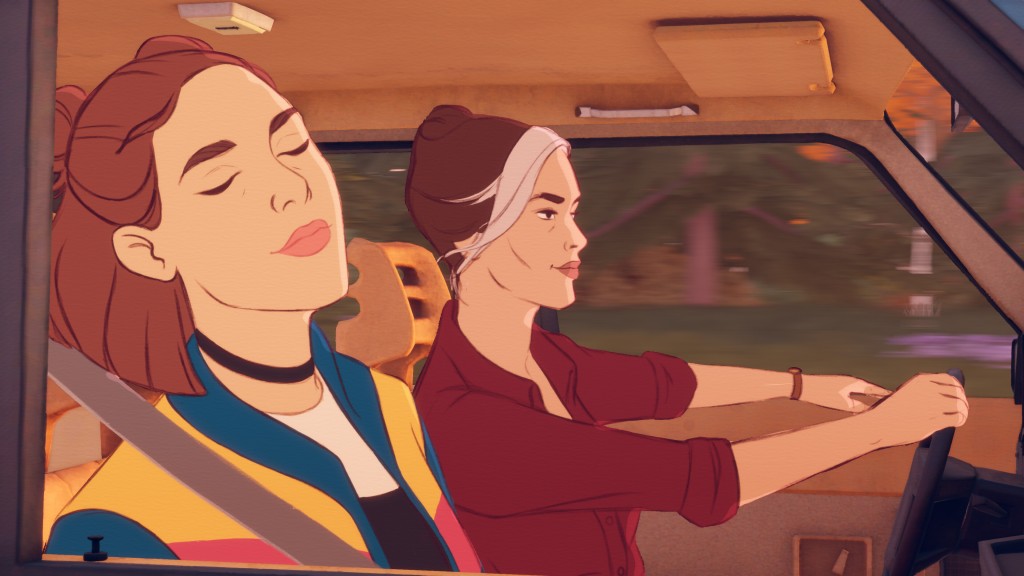
Leave a comment